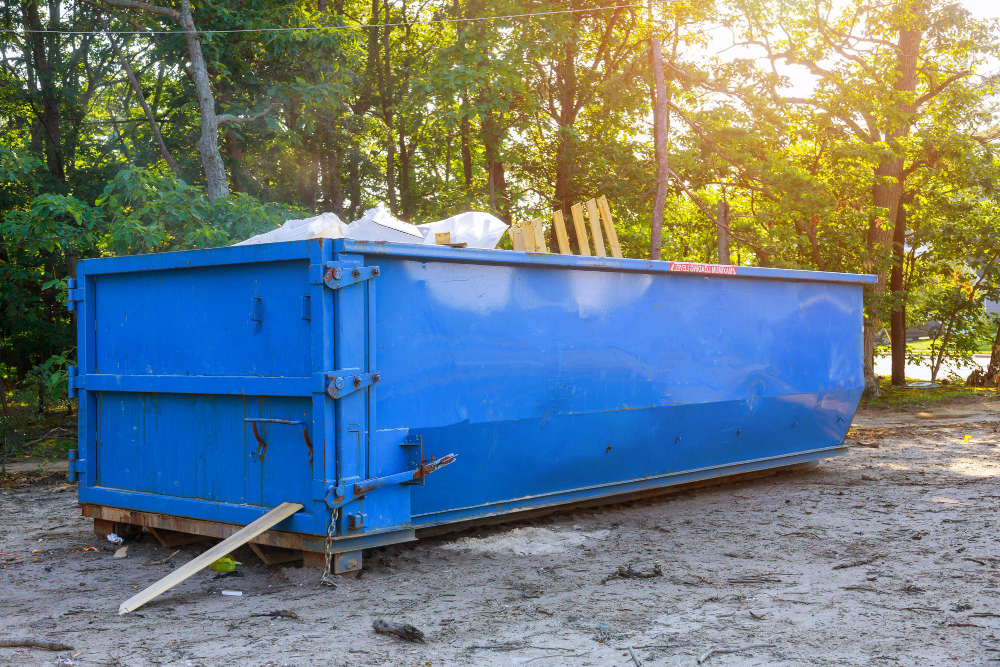


When you have a significant amount of waste to manage, whether from a home renovation, construction project, or a major cleanout, choosing the right type of dumpster is crucial. The two most common options are roll-off containers and traditional front-load dumpsters. While they both serve the purpose of waste disposal, they are designed for very different needs.
Understanding the key differences between these two can help you make a more informed, cost-effective decision for your project. This guide will compare roll-off containers and traditional dumpsters, exploring their features, typical uses, and benefits. By the end, you'll have a clear idea of which option is the best fit for your specific waste management needs, especially if you're undertaking a project in the Orlando area.
You've likely seen traditional dumpsters behind restaurants, apartment complexes, and office buildings. These are the permanent or semi-permanent waste containers used for regular, scheduled trash collection by a commercial waste management service.
Sometimes called front-load dumpsters, they get their name from the way they are emptied. A specialized truck uses two forks on its front to lift the dumpster over the cab and empty the contents into the truck's main compartment. They are typically made of plastic or metal and feature a slanted top with a lid to keep pests out and contain odors.
Traditional dumpsters are ideal for businesses and residential complexes that generate a consistent, manageable amount of daily waste. Their primary purpose is to handle the routine trash and recycling produced by ongoing operations.
They are perfect for:
However, they are not designed for the large, bulky, and often heavy debris generated by temporary projects like construction or major cleanouts.
A roll-off container, often simply called a roll-off dumpster, is a large, open-top waste container designed for temporary projects. The name "roll-off" comes from how it's delivered and removed. A specialized truck uses a hydraulic system to roll the container off its chassis and onto the ground.
These containers are rectangular, made of heavy-duty steel, and feature a large door at one end that can swing open. This door is a key feature, as it allows you to walk heavy or bulky items directly inside instead of having to lift them over the sides.
A roll off container rental is the go-to solution for temporary projects that produce a large volume of waste. Their robust construction and large capacity make them perfect for handling materials that a traditional dumpster cannot.
They are ideal for:
For residents and contractors in Orlando, FL, a roll-off container is an indispensable tool for managing project waste efficiently.
Let's break down the comparison into key categories to help you decide.
Choosing between a roll-off container and a traditional dumpster comes down to the nature of your waste.
If you are a business owner needing a permanent solution for daily trash, a traditional front-load dumpster is the right fit. It’s built for routine waste management with a predictable schedule.
However, if you're starting a home renovation, clearing out a property, or managing a construction site, you need a roll-off container. Its superior size, strength, and convenient loading features are specifically designed to handle the demands of these large-scale projects. It provides the flexibility and capacity to keep your worksite clean and safe without the constraints of a standard commercial dumpster.
For your next big project in Orlando, FL, don't get stuck with a waste solution that can't handle the job. A roll off container rental offers the most efficient and practical way to manage your debris.
Ready to get your project started on the right foot? Contact Tip Top Containers today to request a quote for a roll off container rental in Orlando, FL. Our team will help you select the perfect size for your needs and ensure a smooth, hassle-free experience from delivery to pickup.